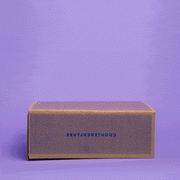Kenya is known for its amazing coffee quality, but it has also traditionally been a difficult place to develop purchasing relationships directly with growers. Most coffees from small estates are sold through the country's national auction system, where they are generally blended together after purchase and sold to large-scale buyers for lower prices. In the early 2010s, we set out to work around this system and partner directly with small estates interested in quality-improving collaborations. Through that pursuit, we met Peter Mbature at the Kamavindi estate.
From the start, Peter was very engaged with improving quality and saw the benefit in working more directly with a roaster. The conversations we started on his farm continued over email, and within a few months, he had taken Kamavindi’s coffee from okay to excellent, making it one of our best offerings from 2015 to present. The next year, Peter and Counter Culture set out to build on this success by identifying other quality-focused growers and inviting them to trainings. For years, Peter drove around to farms in the foothills of Mt. Kenya with a moisture meter—riding a motorcycle adorned with Counter Culture Stickers—to share his quality improvements with his neighbors and other interested producers. Over time we saw quality improve at other members' farms as well.
Each season, Counter Culture meticulously tastes through offers from each member, sharing detailed feedback with producers along the way. We set aside the most exemplary lots to feature as single-farm products on our single-origin menu, and some of the best smaller lots are blended into this Kushikamana product. In an effort to buy across quality tiers, we also create a blend of the slightly lower-grade coffees, which producers typically struggle to get a good price for, and put most of them into our Hologram Year-Round blend. We come to price agreements directly with the growers, a practice which is still uncommon in Kenya. We believe it fosters more transparent and equitable partnerships. Since its founding in 2017, this informal network of growers has grown to around a dozen farmers with a culture of comradery and knowledge-sharing. Today, all of the Kenyan coffee we purchase is from individual members of Kushikamana.
![]()
![]()
![]()
![]()
![]()
![]()
![]()
![]()











